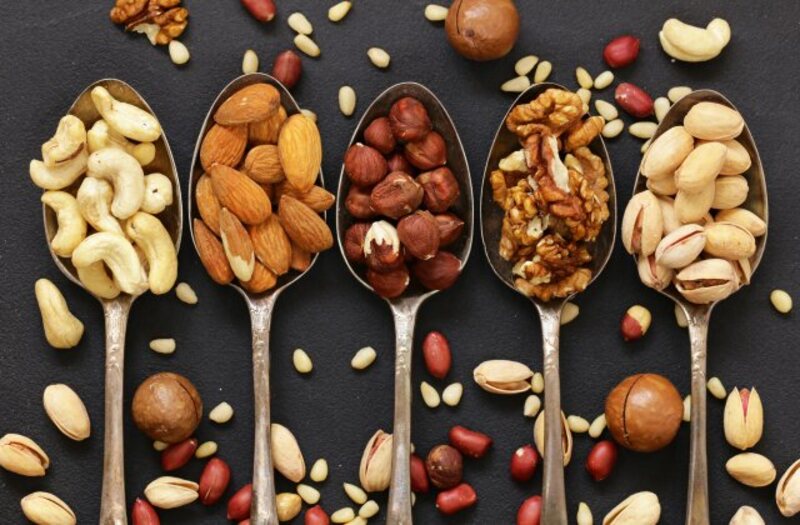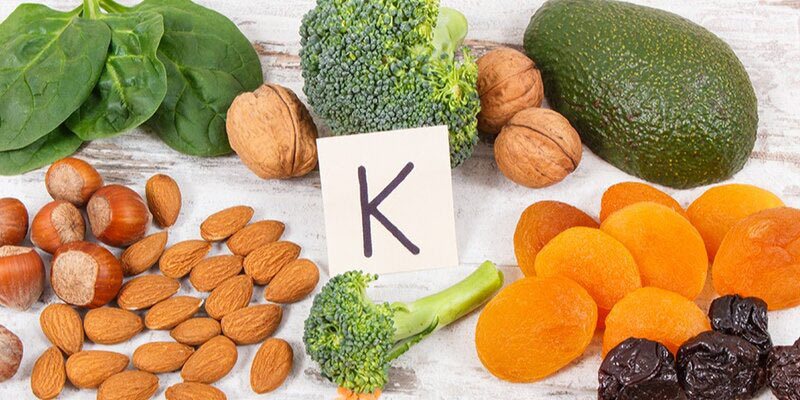An essential nutrient, Vitamin K actively participates in a multitude of bodily functions. It regulates blood clotting, promoting wound healing and preventing excessive bleeding. It also promotes bone health by regulating calcium absorption. In this article, we embark on an exploration of the numerous sources of Vitamin K and investigate foods abundant in this indispensable nutrient so you can consume it for its myriad benefits for fostering a healthy lifestyle.
The Basics of Vitamin K
A fat-soluble vitamin, Vitamin K exists in two primary forms; K1, or phylloquinone, and K2, known as menaquinone. Green leafy vegetables commonly house the presence of K1 while fermented foods and animal products contain an abundance of K2. Our health relies on both forms because they contribute significantly to blood clotting and bone metabolism, a testament to their indispensability.
Plant-Based Sources of Vitamin K
1. Vitamin K-Rich Herbs
Cilantro, parsley, and basil offer a unique means to boost Vitamin K intake beyond conventional sources. These herbs indeed serve as flavorful enhancements in dishes. Notably, they not only elevate taste but also supply a substantial quantity of Vitamin K1. This supports both blood clotting mechanisms and overall health.
Incorporating Herbs into Your Diet:
Infuse your salads with the freshness of cilantro, enhance soups using parsley, or enrich pesto with basil. These versatile herbs not only add flavor to your meals but also contribute essential nutrients. Thus, meeting a portion of your daily Vitamin K requirements.
2. Green Leafy Vegetables
Among the richest sources of Vitamin K1 are green leafy vegetables, kale, spinach, and collard greens in particular. These nutritional powerhouses do more than simply provide an abundance of Vitamin K. They also offer a diverse array of other essential vitamins and minerals for overall health.
Cooking Techniques for Maximum Vitamin K Absorption:
Consuming these vegetables raw yields benefits. However, cooking them in a small amount of healthy fat, thanks to their fat-soluble nature, enhances the absorption of Vitamin K.
3. Cruciferous Vegetables
Incorporate cruciferous vegetables such as broccoli and Brussels sprouts into your diet to meet your Vitamin K requirements. Not only are these rich in fiber, but they also contain a significant amount of Vitamin K1.
The Importance of a Diverse Diet:
Maintaining a diverse diet, rich in an array of vegetables, ensures optimal Vitamin K intake. This strategy not only provides varied forms of Vitamin K but also offers a spectrum of other health-essential nutrients.
Animal-Based Sources of Vitamin K2
4. Fermented Foods
Primarily found in animal products and fermented foods is Vitamin K2, the lesser-known form of this nutrient. A Japanese dish natto made from fermented soybeans, along with certain cheeses serve as excellent sources of Vitamin K2 promoting not only bone health but also cardiovascular well-being.
Understanding Vitamin K2 Benefits:
The research underscores a potential role for Vitamin K2 in mitigating arterial calcification and enhancing bone mineralization. Thus, incorporating these foods into your diet may bolster the overall health of your cardiovascular and skeletal systems.
5. Meat and Poultry
Particularly organ meats like chicken and beef liver, meat and poultry in general, contain significant amounts of Vitamin K2. When we consume these nutrient-rich foods, they not only provide us with Vitamin K but also offer essential amino acids and iron. This contributes to our overall nutritional balance.

Balancing Nutrient Intake:
Maintain a balanced diet by incorporating meat and poultry, but do not neglect the importance of variety. Pair these foods with an array of vegetables to support your body's diverse nutritional needs. This will ensure that you have a well-rounded profile for optimal health.
Vitamin K through Fats
6. Oils and Fats
Olive oil and avocado, healthy sources of monounsaturated fats, also provide small amounts of Vitamin K, incorporating these into your diet offers a delicious means to support nutrient requirements. Isn’t this an interesting fact?
Cooking Tips for Vitamin K Retention:
Not only does the use of olive oil in salad dressings enhance flavor, but it also aids in retaining Vitamin K content: a double benefit. Similarly, when we drizzle this golden elixir over cooked vegetables, we're not just adding a touch of culinary elegance, we're preserving essential nutrients.
7. Dairy Products
Cheese and yogurt, rich in calcium and offering a modest amount of Vitamin K, actively support the absorption and utilization of calcium within the body, contributing to optimal bone health.
Choosing Low-Fat Options:
By opting for low-fat or Greek yogurt, and by choosing moderate portions of cheese. Individuals can ensure they receive the benefits of Vitamin K–all without an excessive intake of calories or saturated fat.
Small Ways for Vitamin K Intake
8. Supplementation
Sometimes, individuals might struggle to acquire adequate Vitamin K solely from their diet; in these cases, they should consider taking supplements. A healthcare professional needs to guide the intake of these supplements. Available options include K1 and K2--both serve as essential forms for supplementation.
Balancing Diet and Supplements:
Supplements, while potentially beneficial, should never supplant a balanced diet. The integration of both dietary sources and supplements guarantees comprehensive nutrient intake, a crucial component for optimal health.
9. Nuts and Seeds
Let us now delve into another often overlooked, yet valuable source of Vitamin K, nuts and seeds. These crunchy morsels not only enhance the texture of your meals. They also boost your daily intake of this essential nutrient.

Walnuts and Sunflower Seeds:
Excellent sources of Vitamin K include walnuts and sunflower seeds. These unsung heroes of nutrition offer a versatile, convenient method for boosting your levels.
Understanding the diverse sources of Vitamin K and incorporating them into your diet is an essential endeavor for overall health.
Meeting your Vitamin K needs, be it through these sources or others, contributes significantly to three vital aspects. Those are blood clotting, bone health, and cardiovascular well-being. Embrace a varied diet that is rich in nutrients. This approach allows you to harness fully the power of Vitamin K for not just any life, but one marked by enhanced vibrancy and superior healthiness.




